We all want our cats to lead long and healthy lives. However, similar to humans and canines, cats often have stomach sensitivities. This results in issues such as vomiting, constipation and/or diarrhoea.It is common for cats to vomit hairballs occasionally. This is due to them grooming themselves frequently. However, it is not normal for your cats to start vomiting after each meal. Additionally, it is also important to monitor your cat if they are experiencing issues such as constipation or diarrhoea. All of which may signal towards your feline being sensitive to a particular ingredient in their food.In this article, we will discuss how to identify stomach sensitives, the best food for your cat and other tips.
Signs of Stomach Sensitivity in Cats
There are some indicators that may help you to identify sensitive stomachs in cats, which could be a result of food allergy or intolerance. Some of the indicators are:
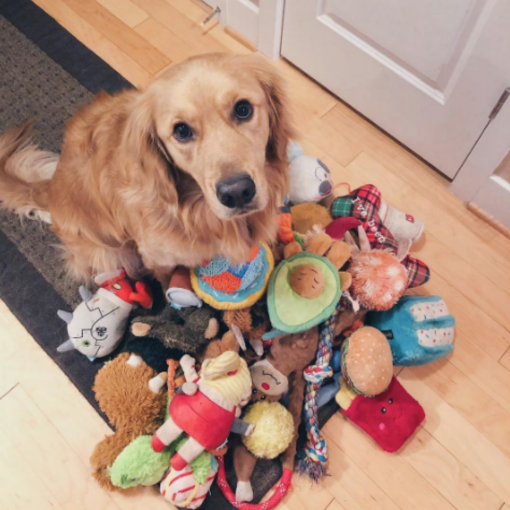
How to identify stomach sensitivities in cats?
Should you observe any of the above-mentioned symptoms, you will need to determine if it is a chronic or acute issue. However, cats are not immune to problems such as stomach virus and other short-term illnesses. They, too, can result in the above-mentioned symptoms. Do note that, if your cat’s condition is severe, seek the attention of your vet immediately.Considering that vomiting may also resemble feline asthma, it is undoubtedly more difficult to determine if your felines have any of the above indicators or symptoms.
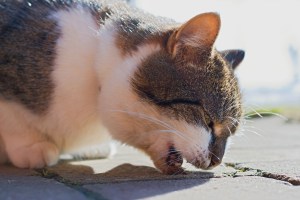
However, if your cat appears to be coughing but is coughing up nothing, it is critical that you attend to them immediately. Whilst attending to them, check and examine that it is neither feline asthma nor a blockage in the esophagus. Besides that, you should also monitor if your cats are coughing up hairballs at least once per month or if they show any of the above stated symptoms. If any are observed, seek the help of a vet immediately.
Acute or Chronic — How to identify them?
Most illnesses can be categorised as acute or chronic. This is important, as it often offers or suggests the type of treatment needed.Firstly, if the problem is acute (sudden onset), it could be an indication due to several reasons. Some reasons could include a sudden change in diet, stress, an infection or intestinal issue.Secondly, if the problem is chronic (ongoing for at least a year on medical attention), it could be an indication that your cat could be suffering from problems such as food allergies and a sensitive stomach.Lastly, although you can try to identify and observe if your cats display any of the above aforementioned, it is still important to let your vets do the test necessary to correctly and accurately diagnose your cats.
Identified? — Here’s what could be done next!
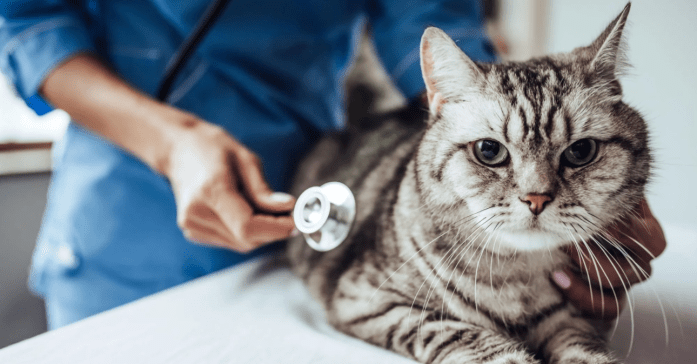
Being on the assumption that if you seek the attention of a vet, your vet will perform tests such as ultrasound, X-ray and blood work. All of which will help to diagnose the cause of your cat’s upset stomach accurately. This is, essentially, the most influential opinion that will rule out the final diagnosis accurately.Despite that, it is very often that the reasons behind gastrointestinal issues could be due to a few generally common reasons. It could be due to food allergies, food flavourings, additives or preservatives, and/or poorly digested food.For most of the time, stomach sensitivities in your cats can be eased or resolved when your cats are fed with a specially formulated diet. Despite that, it is also important to be cautious when you are intending to change your cat’s diet. Keep in mind to always seek your vet’s advice before proceeding to make adjustments to their diet.
Trial Diet to Ease Stomach Sensitivities in Cats
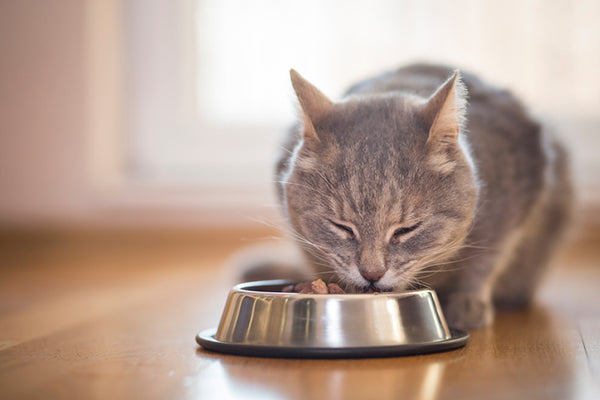
Once your vet has determined that it is indeed an issue with a sensitive stomach, the next step is a trial diet. A trial diet will help determine the most suitable diet and eliminate food options that may result in stomach sensitivities in your cats.Keep in mind that what works for one cat will not always work for another. Your friends who have had similar issues with their cats in the past are always eager to offer advice. But every cat is different so it is best to strictly adhere to the advice of your veterinarian.Also, it can take as many as four months for your cat’s body to clear their old diet out of their system before you can make sense of the new diet. Patience is of the essence when adjusting your cat’s diet.
Cats With Sensitive Stomachs – Some Diet Tips To Share!
Ideally, the best foods for stomach sensitivities in cats are those that do not contain any ingredients that can irritate their digestive system, so they must be easy to digest. This typically consists of a food’s nutritional analysis showing an appropriate percentage of protein and carbohydrates as well as moderate to low fats.The best food for a cat with a sensitive stomach should be highly digestible and contain no ingredients that might be hard to digest. Highly digestible diets have moderate to low fat, moderate protein and moderate carbohydrates. Additionally, this type of diet should contain vitamins & minerals that aim to improve your cat’s intestinal tract such as Omega-3 fatty acids, antioxidants and soluble fiber. The foods should also be free of lactose, food colouring, preservatives and gluten.Check out here to explore cat foods with moderate protein levels.
Wet and Dry Food – Which is Better?
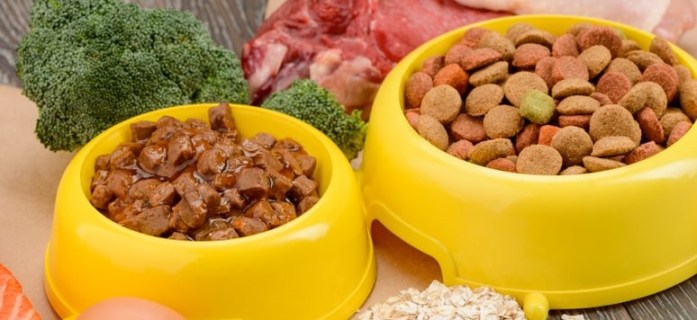
Occasionally, something as simple as switching up the type of food you feed your cat can resolve their stomach issues. If your cat has issues with dry food, try switching to canned food that is high in protein and low in carbs. While if your cat is on a wet food diet, you can consider switching their diet to a dry one during the trial period. You could even try mixing both dry and wet foods together. There is no one diet that suits all, it is important to try and discover what’s best for your cats.You can read more here to understand and learn how you can choose the best cat food for your cats.
Hypoallergenic Diets
A type of diet that is most unlikely to result in an allergic reaction.
In most cases, stomach issues in cats are related to food allergies. But believe it or not, foods high in protein such as chicken are often the culprit of food allergies in felines. Studies have indicated that the most common allergens for cats when it comes to food include beef, chicken and fish. However, switching to a hypoallergenic diet can help alleviate these symptoms and restore their gastrointestinal health. There are 3 other types of diets that at also hypoallergenic and they are:
Veterinary Prescribed Novel Protein Food
A novel protein diet prescribed by your vet may be beneficial for cats with severe allergies. They are usually a singly sourced protein, producing in facilities to prevent cross-contamination.
Hydrolysed Protein
A diet that requires a veterinarian’s prescription. This form of diet aims to break down big protein molecules into smaller and shorter chains of amino acids. This makes sure that your cat’s immune system is able to recognise the chains of amino acids.
Limited Ingredient Diet
A diet that typically consists of only one carbohydrate and one protein source respectively. Unlike the above stated two types of diet, this diet does not require any forms of prescription. Hence, purchasing of these limited ingredient formulas can be done at any online pet stores.Furthermore, make sure to supervise and monitor your cat while they are on a limited ingredient diet. This is to ensure that they are getting the proper amount of nutrients and that the foods are not cross-contaminated.
Switching Up Their Food Routine
Some cats that consume large meals once or twice a day tend to vomit shortly after eating. This is because a cat’s stomach is only roughly about the size of a ping-pong ball. Therefore, it is best for your cat to eat smaller meals several times a day.In order to ensure the proper digestion of ingested food, smaller and more frequent meals are recommended to prevent regurgitation in cats.If you leave your cat’s dry food out 24/7, so that they can free feed, some cats will tend to eat larger amounts of food. You might then ask: “How can I ensure that my cats are fed a small portion of food on time every day?”
Hence, we recommend purchasing a timed food dispenser. This pet technology allows you to serve portions of dry food that you have preset. Additionally, it is also able to substitute you in place of feeding physically while you are at work.While every cat has its own unique health needs, not every cat requires the same diet. Therefore, some may need supplemental vitamins on top of their diet. Keep in mind and always make sure that your cat has access to freshwater to stay hydrated throughout the day.By working closely with your vet, you can switch your cat to a healthy diet that will ease their stomach issues and give you peace of mind.

